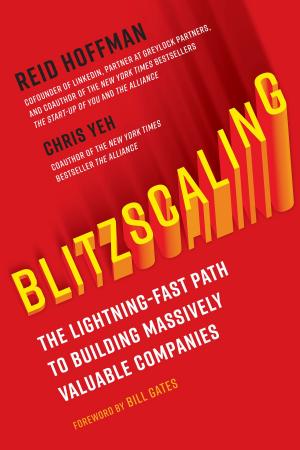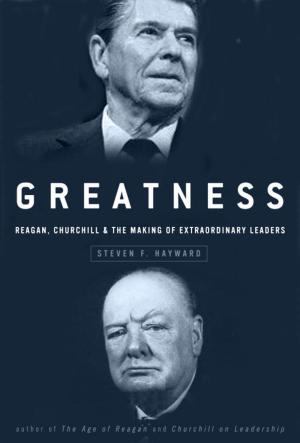Everyone Else Must Fail
The Unvarnished Truth About Oracle and Larry Ellison
Business & Finance, Business Reference, Corporate History, Biography & Memoir, Business, Industries & Professions, Industries| Author: | Karen Southwick | ISBN: | 9781400052318 |
| Publisher: | The Crown Publishing Group | Publication: | December 23, 2003 |
| Imprint: | Crown Business | Language: | English |
| Author: | Karen Southwick |
| ISBN: | 9781400052318 |
| Publisher: | The Crown Publishing Group |
| Publication: | December 23, 2003 |
| Imprint: | Crown Business |
| Language: | English |
Karen Southwick’s unauthorized account provides the full story of Larry Ellison’s brilliant, controversial career. Ellison’s drive and fierce ambition created Oracle out of the dust and built it into one of America’s great technology companies, but his unpredictable management style keeps it constantly on the edge of both success and disaster. The hostile bid for PeopleSoft is just the most recent example. With one clever strategic move, Larry Ellison threw much of the business software field into play.
The saying “It’s not enough that I succeed, everyone else must fail” has been so often used by or associated with Ellison that most people think it originated with him. It’s actually attributed to Genghis Khan, but it’s a dead-on way to describe not only the way Ellison thinks about competitors but the way he runs Oracle. His weapons are not marauding hordes, but Oracle’s possession of database technology that is crucial for keeping mission-critical information flows working at thousands of organizations, corporations, nonprofits, and government agencies.
Inside Oracle, Ellison has time and again systematically purged key operating, sales, and marketing people who got too powerful for his comfort. Most notable was Ray Lane, Oracle’s president for nine years, who was widely credited with bringing order out of the chaos that was Oracle in the early nineties and growing it into a ten billion dollar company. Ellison got rid of the one key person who was building confidence with Wall Street, business partners, and customers that Oracle was no longer flying by the seat of its pants and had its act together. Ellison’s mania for absolute control and his inability to coexist with the very lieutenants who bring much-needed stability to the company have brought Oracle to the brink of collapse before, and may well do it again.
Ellison is a throwback to an earlier, much more freewheeling version of capitalism, the kind practiced by the nineteenth-century robber barons who ran their companies as private fiefdoms. Larry Ellison is one of the most intriguing and dominant leaders of a major twenty-first-century corporation, and Everyone Else Must Fail raises the question of whether Oracle’s products and the reliance placed in them by so many are too important to be subject to the whims of one man. While giving credit to Ellison’s brilliance and devotion, the book sounds a warning about an ingenious man’s tendency to be his own company’s worst enemy.
Karen Southwick’s unauthorized account provides the full story of Larry Ellison’s brilliant, controversial career. Ellison’s drive and fierce ambition created Oracle out of the dust and built it into one of America’s great technology companies, but his unpredictable management style keeps it constantly on the edge of both success and disaster. The hostile bid for PeopleSoft is just the most recent example. With one clever strategic move, Larry Ellison threw much of the business software field into play.
The saying “It’s not enough that I succeed, everyone else must fail” has been so often used by or associated with Ellison that most people think it originated with him. It’s actually attributed to Genghis Khan, but it’s a dead-on way to describe not only the way Ellison thinks about competitors but the way he runs Oracle. His weapons are not marauding hordes, but Oracle’s possession of database technology that is crucial for keeping mission-critical information flows working at thousands of organizations, corporations, nonprofits, and government agencies.
Inside Oracle, Ellison has time and again systematically purged key operating, sales, and marketing people who got too powerful for his comfort. Most notable was Ray Lane, Oracle’s president for nine years, who was widely credited with bringing order out of the chaos that was Oracle in the early nineties and growing it into a ten billion dollar company. Ellison got rid of the one key person who was building confidence with Wall Street, business partners, and customers that Oracle was no longer flying by the seat of its pants and had its act together. Ellison’s mania for absolute control and his inability to coexist with the very lieutenants who bring much-needed stability to the company have brought Oracle to the brink of collapse before, and may well do it again.
Ellison is a throwback to an earlier, much more freewheeling version of capitalism, the kind practiced by the nineteenth-century robber barons who ran their companies as private fiefdoms. Larry Ellison is one of the most intriguing and dominant leaders of a major twenty-first-century corporation, and Everyone Else Must Fail raises the question of whether Oracle’s products and the reliance placed in them by so many are too important to be subject to the whims of one man. While giving credit to Ellison’s brilliance and devotion, the book sounds a warning about an ingenious man’s tendency to be his own company’s worst enemy.















